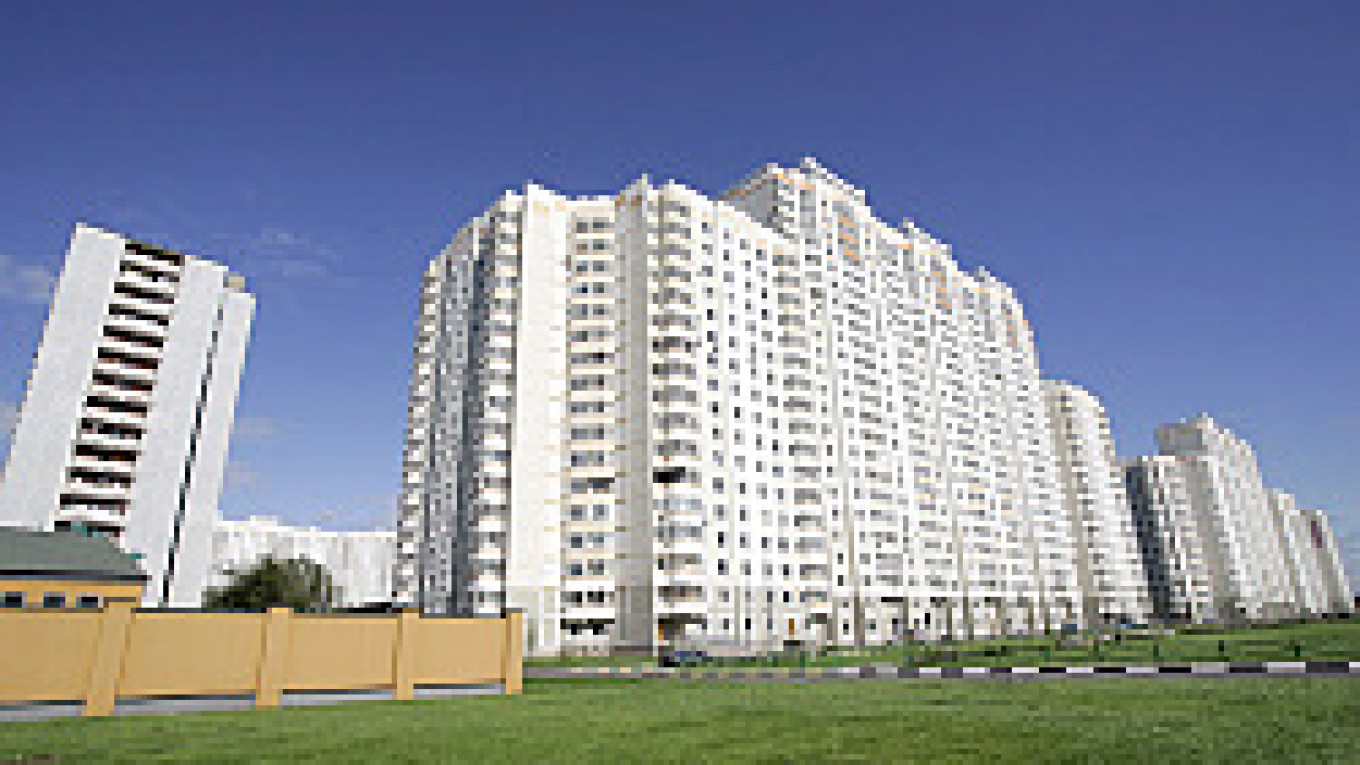In the last year, residential real estate prices in the city have more than doubled. The going rate for apartments at the start of October 2005 was just $1,900 per square meter.
"One hundred percent growth is unheard of. This has only happened in Moscow," said Gennady Sternik, a professor of urban construction at the Plekhanov Economics Academy. "In Western cities, this kind of growth would be almost unimaginable."
Real estate prices have grown so furiously in the last year that, almost overnight, Moscow became the world's most expensive city for homebuyers, overtaking London, New York and Tokyo, according to Angela Kuzmina, director of Intermark real estate agency.
As the rate of growth slowed from 3 percent to just 1 percent per week in September, however, real estate industry insiders say that Moscow's bubble may already have burst.
"The rise of Moscow real estate prices in the coming months will remain steady," said Daromir Obukhanich, general director of developer PIK. "But there won't be any increase in growth."
Buyers who said they had to bribe realtors to show them apartments last spring now have a wide variety of choices on offer.
"One seller recently lowered his price by $5,000 to $190,000 for a 49-square-meter apartment," said a first-time homebuyer, who requested anonymity for fear of upsetting his realtor. "But the place was such a dump we weren't going to take it anyway."
Skyrocketing prices may be a thing of the past, but industry sources insist that no dramatic decrease in apartment prices will occur any time soon. They also note that the same conditions that created the seller's market remain in place today.
"This is explained by economic cycles," said Sternik. "We've had six years of steady increases. In one year or a year and a half, growth will hit its peak, and there will be a 5 or 7 percent decrease. Then the cycle will start over again."
Until relatively recently, housing bubbles were a rare occurrence in this country. The United States and Britain saw prices soar in the 1970s. The British boom was attributed to a brief switch away from Greenwich Mean Time. It was believed that the lost hour of sunlight cut into the construction of new houses.
In the late 1980s, the grounds of Tokyo's Imperial Palace were worth more than the entire state of Florida.
Moscow, however, is the only city to see 100 percent growth in a single year, Sternik said. And growth this robust can't help but take people by surprise.
"The last surge I recall was in 1995-96, and it was nothing compared to this," said Vladislav Portnov, managing director of Morozov Realty.
Basic market forces are driving the growth, analysts agree: a drop in supply and a sharp increase in demand. But what lies behind the drop in supply remains a point of contention.
As prices continued their upward spiral over the summer, federal and city officials decried the high prices caused by a 30 percent decline in residential construction.
The Prosecutor General's Office went as far as to order the Federal Anti-Monopoly Service to investigate price fixing among developers in mid-August.
The investigation, which is scheduled to conclude in December, has produced few results so far, and city officials have recently changed their tune, allowing that the allegations of price fixing may have been inaccurate.
According to Obukhanich of PIK, a 2005 federal law did more to slow construction than any illegal activity. The law, which banned construction firms from soliciting early-stage investment from homebuyers, resulted in a number of smaller firms exiting the market.
The country's economic stability has also influenced the price jump. With a rising upper-middle class and high world oil prices, more and more people can afford to pay big money for real estate.
"As prices stabilized in 2004-05 and the State Duma announced the launch of an affordable housing program, many put off buying an apartment, expecting a dip in prices," said Vladislav Lutskov, director of Miel's consulting division. Once it became evident that prices would stay high for some time, however, a large and ravenous group of buyers entered the market, he added.
Another homebuyer, who has ties to the real estate business and asked not to be named, said he did not sense any let-up in the acceleration of price growth when he bought a 60-square-meter apartment near the Belorusskaya metro station earlier this month.
After agreeing to buy the apartment for $350,000, the owners told him they needed $380,000, given that the apartment's price was on the rise.
"I agreed to $370,000, and I felt lucky," he said.
A Message from The Moscow Times:
Dear readers,
We are facing unprecedented challenges. Russia's Prosecutor General's Office has designated The Moscow Times as an "undesirable" organization, criminalizing our work and putting our staff at risk of prosecution. This follows our earlier unjust labeling as a "foreign agent."
These actions are direct attempts to silence independent journalism in Russia. The authorities claim our work "discredits the decisions of the Russian leadership." We see things differently: we strive to provide accurate, unbiased reporting on Russia.
We, the journalists of The Moscow Times, refuse to be silenced. But to continue our work, we need your help.
Your support, no matter how small, makes a world of difference. If you can, please support us monthly starting from just $2. It's quick to set up, and every contribution makes a significant impact.
By supporting The Moscow Times, you're defending open, independent journalism in the face of repression. Thank you for standing with us.
Remind me later.


